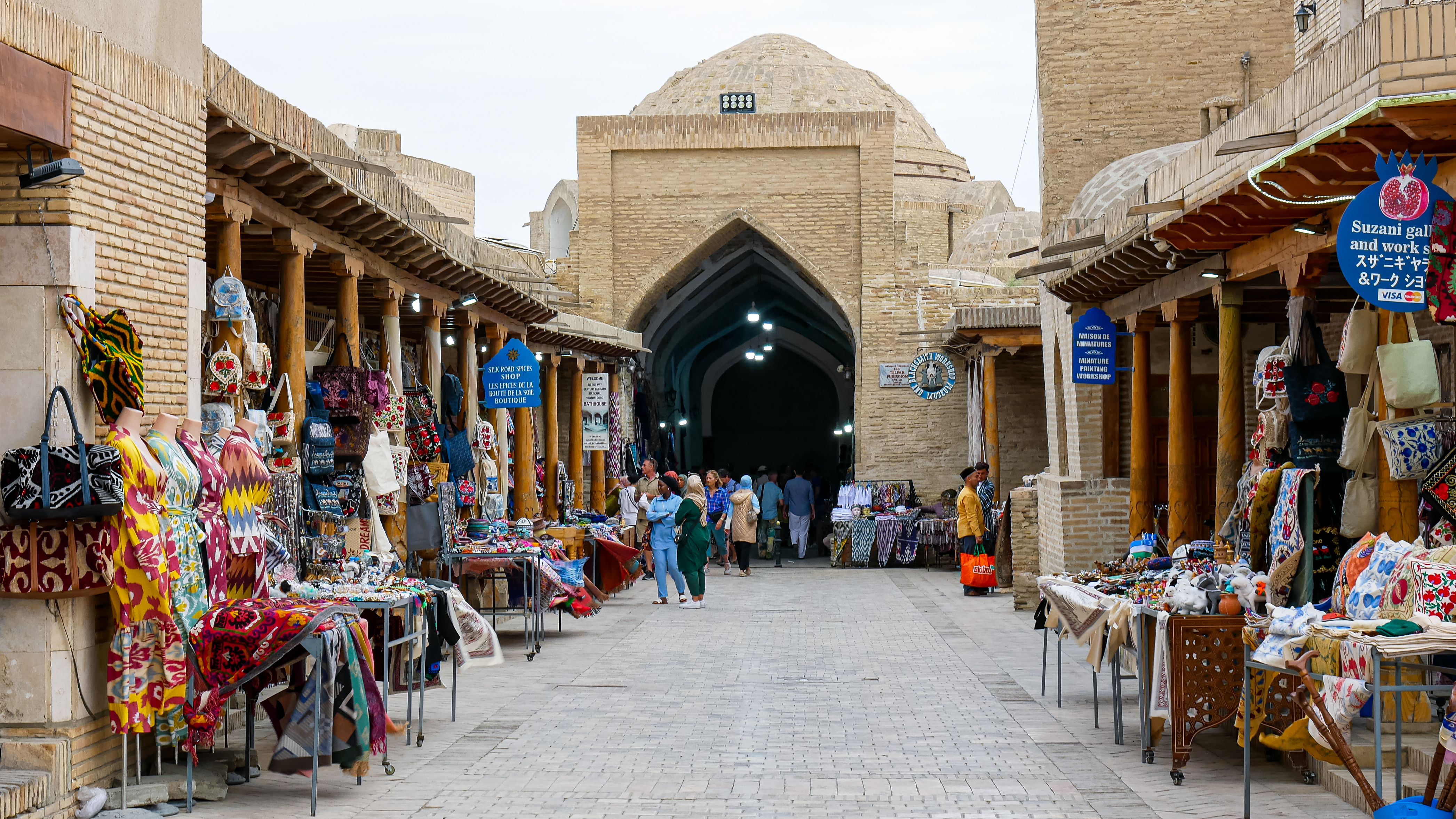
Bukhara, Uzbekistan – For Iskandar Kamolov, a seventh-generation blacksmith, more tourists means more business.
Plying his trade each day at the 16th-century Toqi Zargaron trading dome in Bukhara, Kamolov peddles wares such as traditional knives and scissors to locals and international visitors, mostly from Russia, France and Italy.
On a good day, the 33-year-old craftsman can sell up to 10 items, which go for anywhere from $20 to $800 each. Kamolov’s business hasn’t only benefited from a growing influx of foreign visitors in recent years but also eased customs rules that have made it easier to ship his products out of the country and purchase machines and tools from overseas.
“Our government wants to develop us, develop our [crafts],” Kamolov, who has plied his trade for more than a quarter-century, told Al Jazeera at his workshop. “From [the Uzbekistan] government, I can say it is enough.”
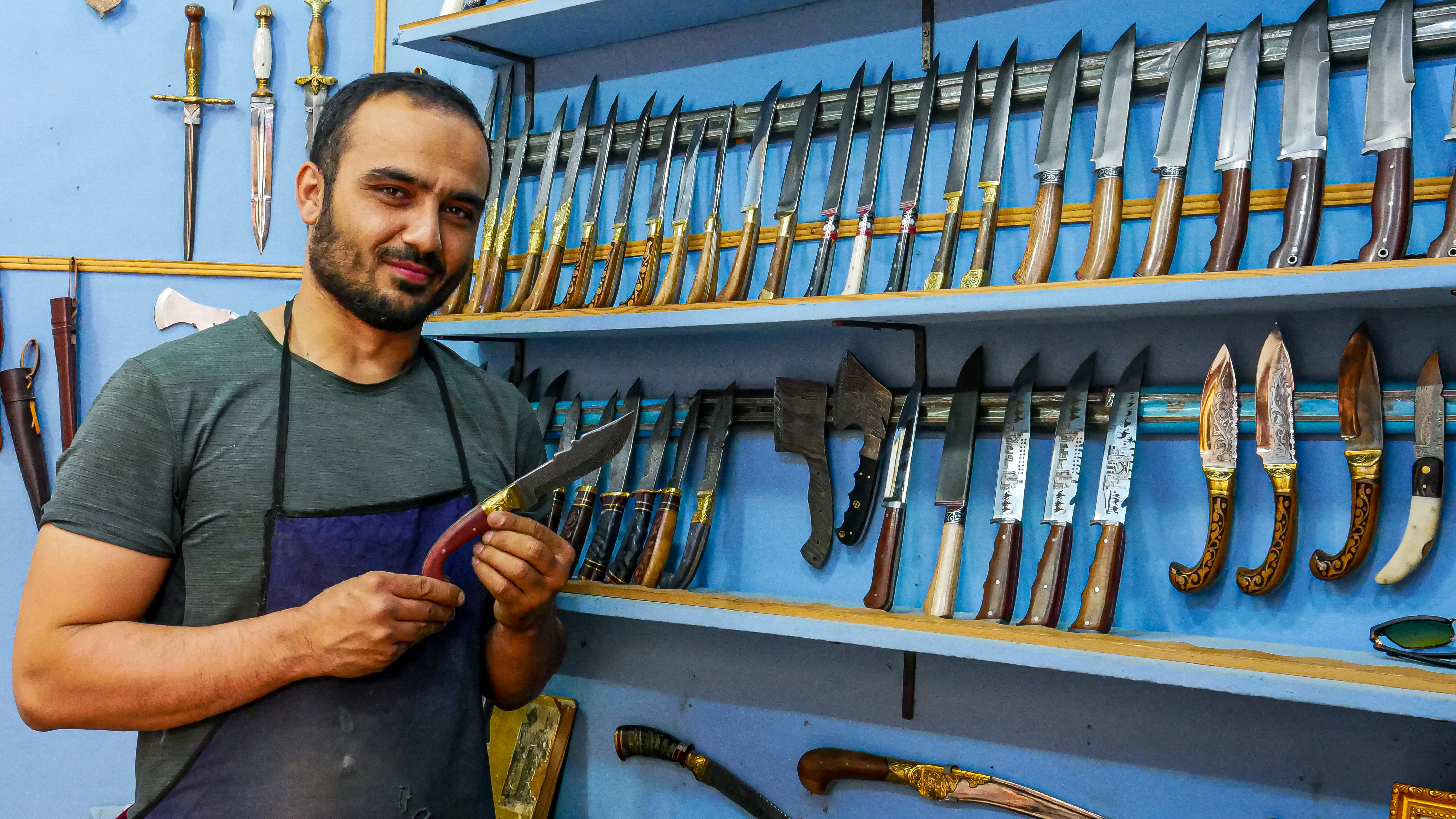
After decades of international isolation, Uzbekistan, a Muslim-majority country of more than 36 million people, is seeking to develop its tourism industry, hoping to capitalise on its heritage as a node on the Silk Road.
Like the cities of Samarkand and Khiva, Bukhara is located at the heart of the web of ancient trade routes that connected Europe with China for a 1,500-year span until the mid-15th century.
Uzbekistan has made “commendable progress” in preserving its Silk Road heritage, said Sara Noshadi, the UNESCO representative to Uzbekistan.
“Uzbekistan has also recognised the potential of these sites as tourism destinations,” Noshadi told Al Jazeera.
Hong Kong accountant Jocelyn Shaw, 31, who flew to the country from Thailand with her boyfriend, said it was “worth it” exploring the Bolo Hovuz mosque in Bukhara after visiting the capital Tashkent and the southwestern city of Khiva.
“With all the wooden columns and all that, it’s quite mind-blowing to me,” Shaw told Al Jazeera. “I haven’t seen such architecture before.”
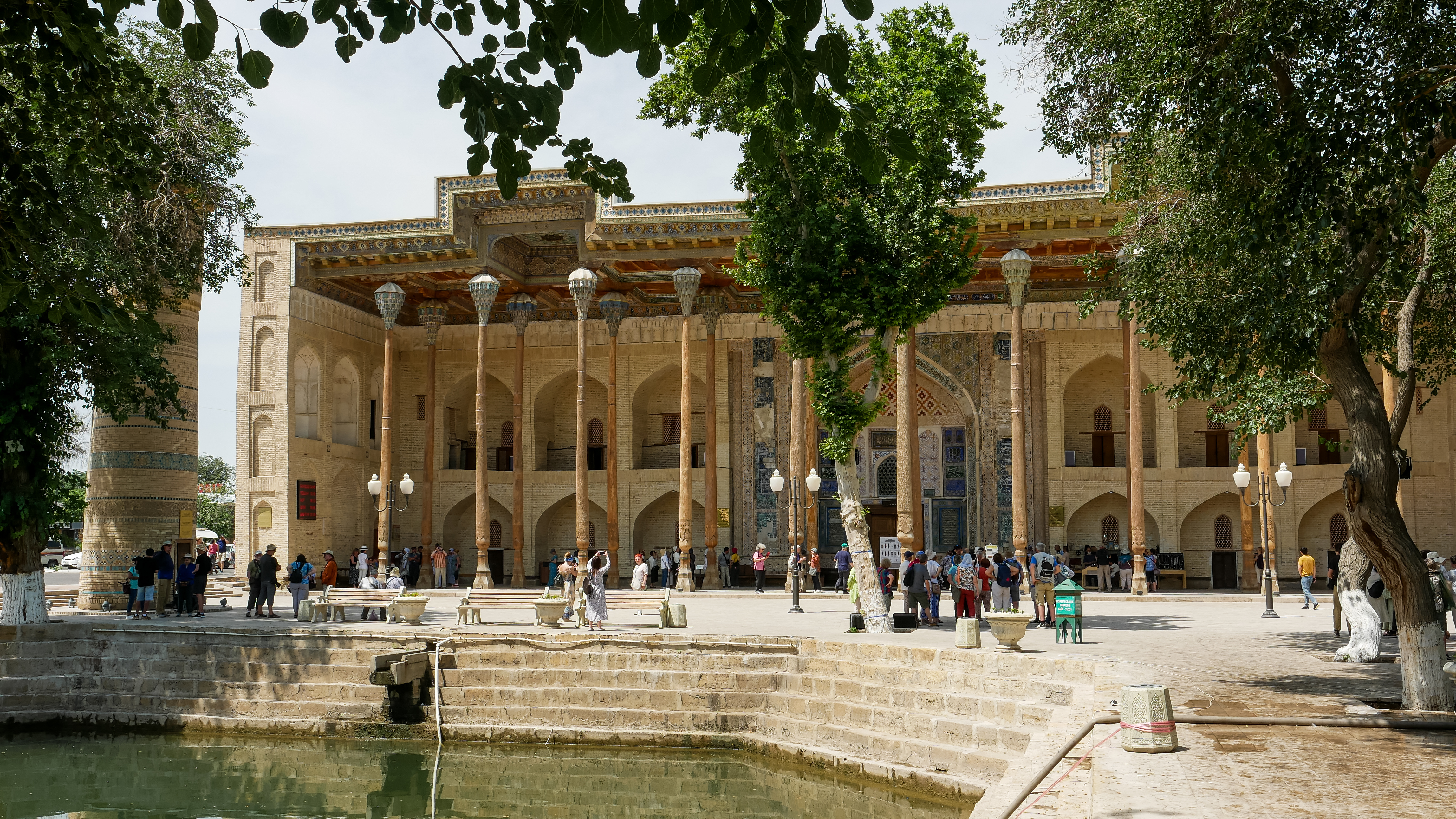
Uzbekistan’s President Shavkat Mirziyoyev has taken steps to open up the former Soviet state since taking office in 2016, following the death of strongman leader Islam Karimov, who kept the country largely off limits to foreigners.
Among other moves, Mirziyoyev’s administration abolished visa requirements for citizens from more than 90 countries and scrapped rules requiring foreign visitors to report their whereabouts to authorities. The government of Central Asia’s most populous country has allocated about $17.8m for tourism development from 2024 to 2025.
In May, Uzbekistan signed a deal with Singapore’s Changi Airport to jointly develop the existing Tashkent International Airport in the capital, the main gateway for arrivals to the country.
Sophie Ibbotson, Uzbekistan’s tourism ambassador to the United Kingdom since 2019, said the country’s efforts to attract investment and tourism have borne fruit in recent years.
International hotel chains like Hyatt, Hilton, Marriott and Intercontinental now have a presence in the country, while airlines such as Turkish Airlines and Flydubai compete with the formerly monopolistic Uzbekistan Airways, Ibbotson said.
“There are financial incentives, particularly for five-star hotels,” Ibbotson told Al Jazeera. “The government will subsidise the construction costs, and there are tax benefits as well. The investment climate is much more open, and the government is supporting it.”
Maftuna Sharapova, a freelance tour guide in Bukhara, said the tourism environment has improved markedly compared with the Karimov era.
“It was not so easy like nowadays. Everything was good, but not so easy,” Sharapova, 28, told Al Jazeera.
Sharapova, whose husband and sister-in-law also work as guides, said the number of guides has risen due to reforms undertaken by the government.
“We have special courses [now], so it’s available for everyone who wants to be a guide,” she said.
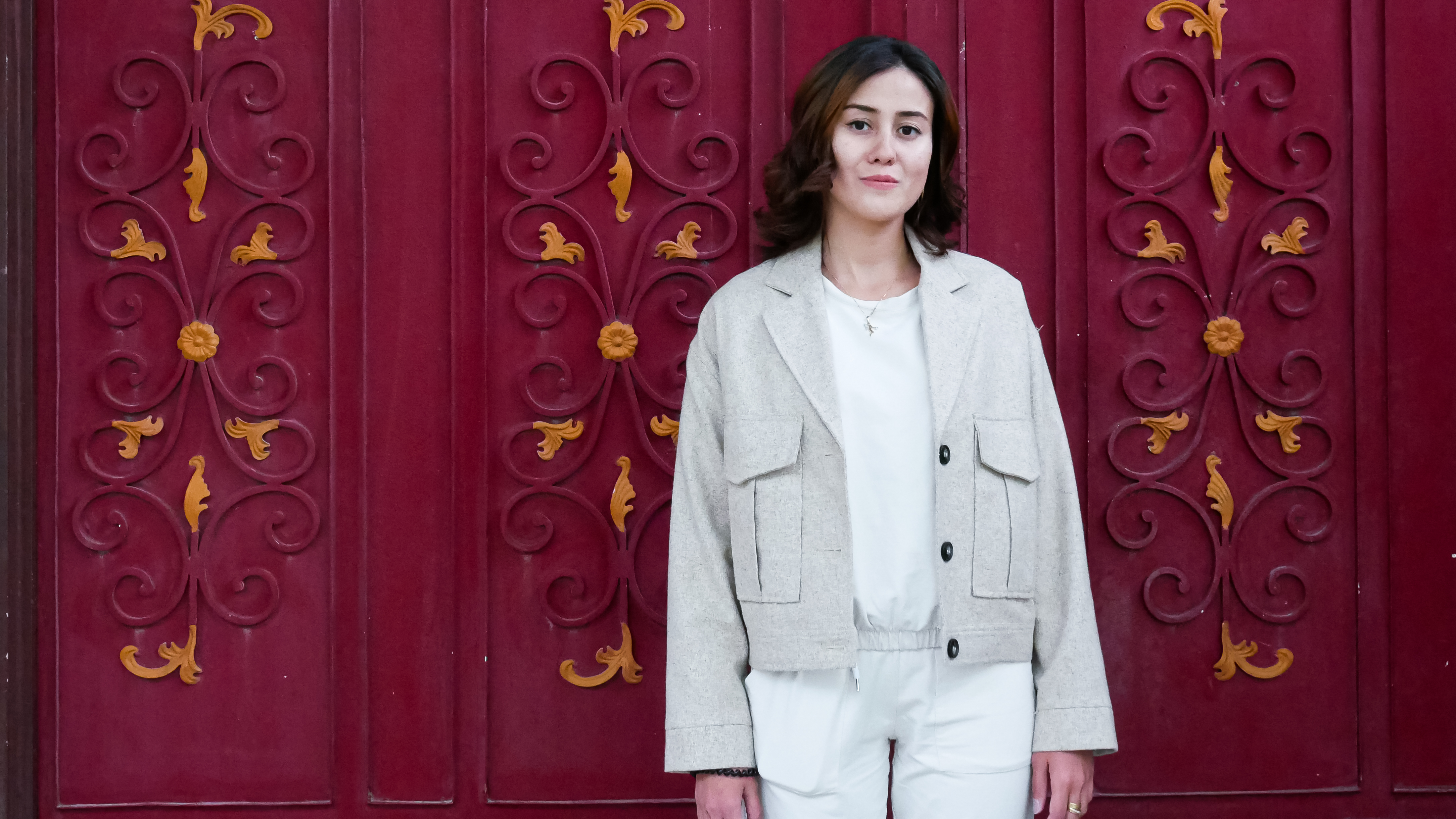
Still, Uzbekistan faces a tough road to developing a thriving tourism market. Tourist arrivals remain modest by international standards.
The country attracted 5.2 million visitors in 2022 – the majority of them from neighbouring Kazakhstan, Kyrgyzstan and Tajikistan – only about one-tenth of the number drawn by countries like Turkey and Italy.
Infrastructure is a particular challenge.
Michael Shamshidov, the co-founder of Samarkand Tourism Forum in the capital Tashkent, said a lack of accommodations was among the “bottlenecks” facing the sector.
“When you don’t have enough hotels, you can’t increase the number of tourists,” Shamshidov told Al Jazeera.
According to Uzbek tourism figures, the republic had 1,193 accommodations – including 51 starred hotels – with 72,336 beds as of May 2023.
Shamshidov said Uzbekistan is still lacking “one big strategy” for sustainable tourism development.
“[Foreign] language issues [and] capacity building issues [are] also part of sustainable development,” he said. “Cultural heritage has to be preserved more professionally and more sustainably,” he added.
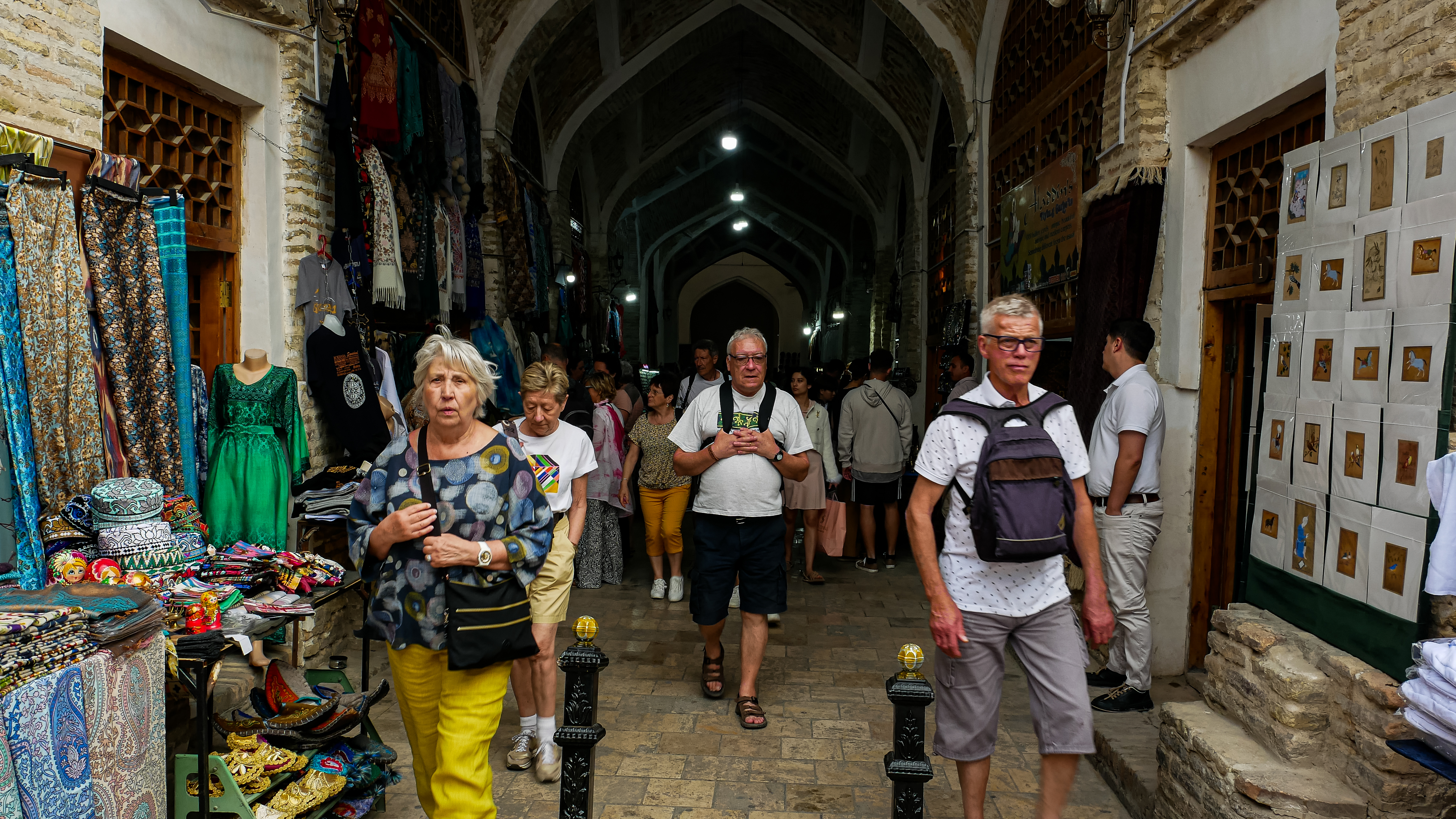
John Thet, the publisher of Asian Geographic Magazines, said visitors to Uzbekistan are mostly confined to participants in group tours due to language barriers and difficulties purchasing essentials, like train tickets.
“Every tourist area must have an English-speaking person to guide [travellers],” Thet, who has led numerous tours in Uzbekistan, told Al Jazeera, adding that basic signage for tourist sites is also often lacking.
Ibbotson, the tourism ambassador, said the government lacked a sense of coordination and long-term planning.”There is still a big lack of capacity within government and the private sector,” Ibbotson said.
“They are starting from, more or less, scratch, so there are not people within the government who have spent their whole careers in tourism and know the sector inside out,” she added.
Even so, visitors are on the rise as the COVID-19 pandemic recedes from the public consciousness – which is good news for many locals who work in tourism-dependent businesses.
Dilnoza Khujakulova, a 30-year-old souvenir vendor at the 16th-century Toqi-Telpak Furushon trading dome in Bukhara, said business had picked up in recent months after a difficult year prior.
Khujakulova said she makes about $100-$150 each day selling suzani silk embroideries, pouches, fridge magnets, carpets and other merchandise, mostly to Russian visitors.
“I hope many tourists [will come] … in August, September, October,” she told Al Jazeera in front of her store.
Randy Mulyanto travelled on a tour organised by Uzbekistan’s Ministry of Tourism and Cultural Heritage, which paid for flights, accommodation, transportation and meals.







